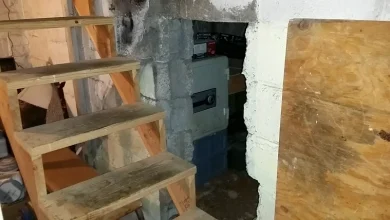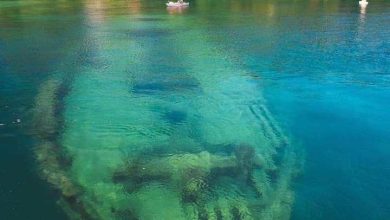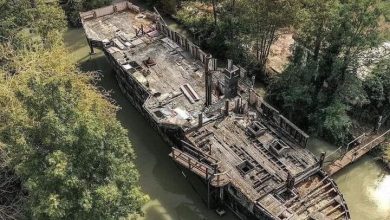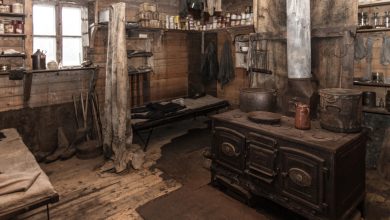Clifton Cliff Jail.
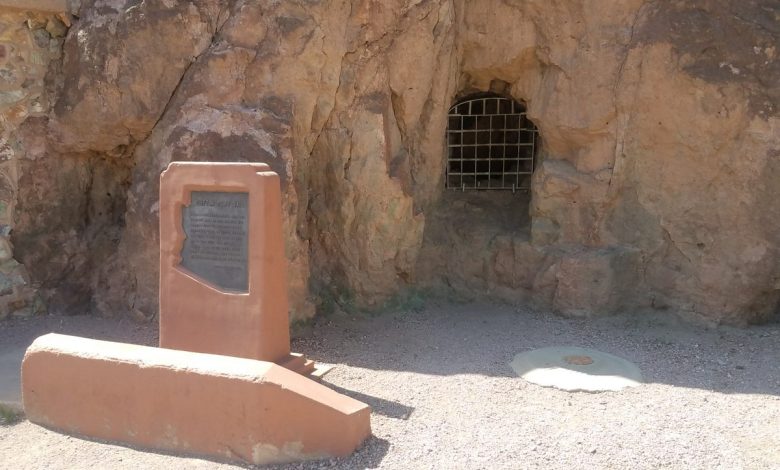
THE SMALL MINING TOWN OF Clifton, Arizona, had a problem. When people were convicted of crimes there or in the neighboring town of Morenci, they weren’t sentenced to time in prison. Instead, they were ordered to work for a certain amount of time in the copper mines that fueled the area’s economy.
The problem was that many of the convicted criminals would simply flee the area rather than report to work and toil in the subterranean tunnels. So, in 1881, Clifton decided to build a prison that no one would be able to escape from. One that was built underground, and into the side of a granite cliff.
The town hired local stonemason Margarito Varela to construct the jail. Using a pickax and explosives, Varela constructed a tunnel that led below ground and into a cavernous room. The cavern was split into two cells: a smaller one for dangerous criminals and a larger one for those charged with less serious crimes. Each had a window to let in fresh air and some light, but the windows were located 10 feet above the cavern floor and connected to the cells by small tunnels. To finish it up, Varela bolted heavy iron bars and doors into the rock.
Unverified local tradition says that when Varela finished constructing the jail, he was paid for his work and went to a local dance hall to drink and celebrate. Later, a very drunk Varela reportedly began happily firing his gun up into the air to get people’s attention to tell them about his completed project. The owner of the dance hall was also a deputy sheriff and arrested Varela, making him the first occupant of the jail he built.
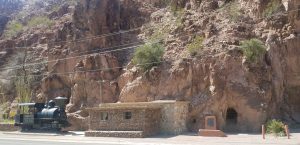
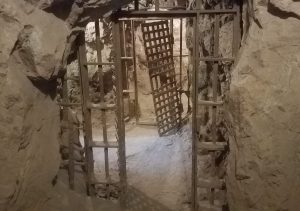
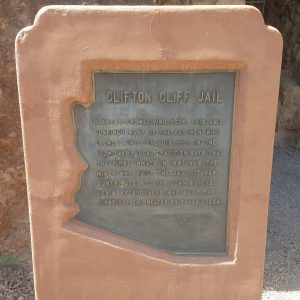
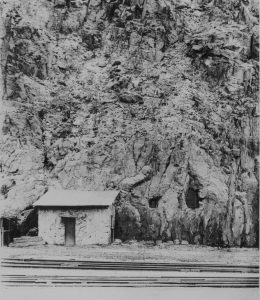
The jail was used until 1906 when a massive flood struck the area. The subterranean jail began to fill with water and the people incarcerated within had to be saved by breaking the bars off the windows and lowering ropes down to pull them out. The prison was filled with so much sediment and debris afterward that it was abandoned.
In 1929, the town began the process of restoring the old jail as a preserved piece of history, and in 1962, the state of Arizona placed a historic plaque out in front. The jail, along with the rest of Clifton’s historic downtown, was added to the National Register of Historic Places in 1990.
Know Before You Go
The jail is alongside U.S. Route 191 as it passes through Clifton. The exterior is open to the public at all times, but the doors that allow you to access the underground cells seem to only be open and unlocked periodically and unpredictably. If you call the local history museum, located on historic Chase Creek, they will happily come open the doors and allow you to take respectful photographs.
